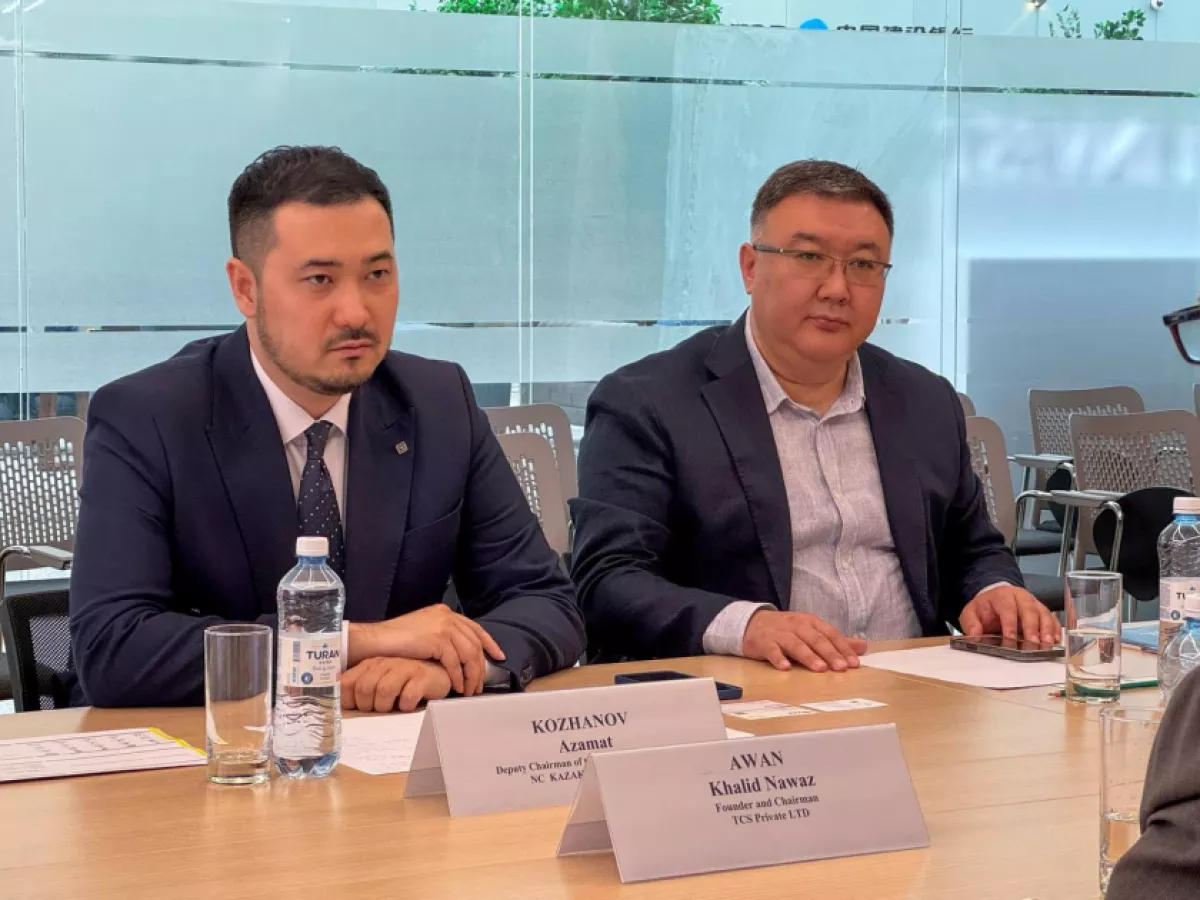Kazakhstan, Pakistan discuss logistics cooperation through Azerbaijan transit PHOTO
Kazakhstan is eyeing new logistics corridors through Azerbaijan as part of a broader strategy to expand its transport connectivity and export reach.
This development was discussed during a recent working meeting in Astana between Azamat Kozhanov, Deputy Chairman of the Management Board of NC “KAZAKH INVEST” JSC, and Khalid Nawaz Awan, Chairman of the Board of Tranzum Courier Service (TCS), Pakistan’s largest integrated logistics company, Caliber.Az reports via Kazakh Invest.
The meeting, supported by the Embassy of Kazakhstan in Pakistan, highlighted the growing importance of alternative multimodal routes, including transit corridors through Azerbaijan, China, and Uzbekistan. As part of the discussions, TCS presented its proposal to attract Kazakhstani investment into the development of Gwadar Port on Pakistan’s southern coast — a strategic hub that could serve as a maritime outlet for goods transported from Central Asia.

A key focus of the negotiations was the potential to develop direct routes bypassing congested and politically sensitive trade paths. These include corridors under the Quadrilateral Traffic in Transit Agreement (QTTA), the Uzbekistan–Pakistan Transit Trade Agreement (UPTTA), and the Kazakhstan–Pakistan Transit Trade Agreement (KPTTA).
Kozhanov emphasised that transport and logistics play a key role in the sustainable development of the economy.
“Cooperation with companies like TCS will strengthen transport connectivity, reduce delivery times, and expand the geography of Kazakhstani exports,” he noted.
TCS has already completed over 600 transit shipments to Central Asian countries, including 17 to Kazakhstan, and is seeking to streamline TIR shipments to eliminate transshipment in third countries. The company is also actively involved in developing corridors via the ports of Karachi and Gwadar, enhancing connectivity between South Asia and Eurasia.
The parties also discussed plans to create joint ventures, digitalise supply chains, and establish logistics hubs that support a sustainable and resilient transport infrastructure across the region. Further consultations involving government agencies and private-sector stakeholders are expected to follow.
By Sabina Mammadli








